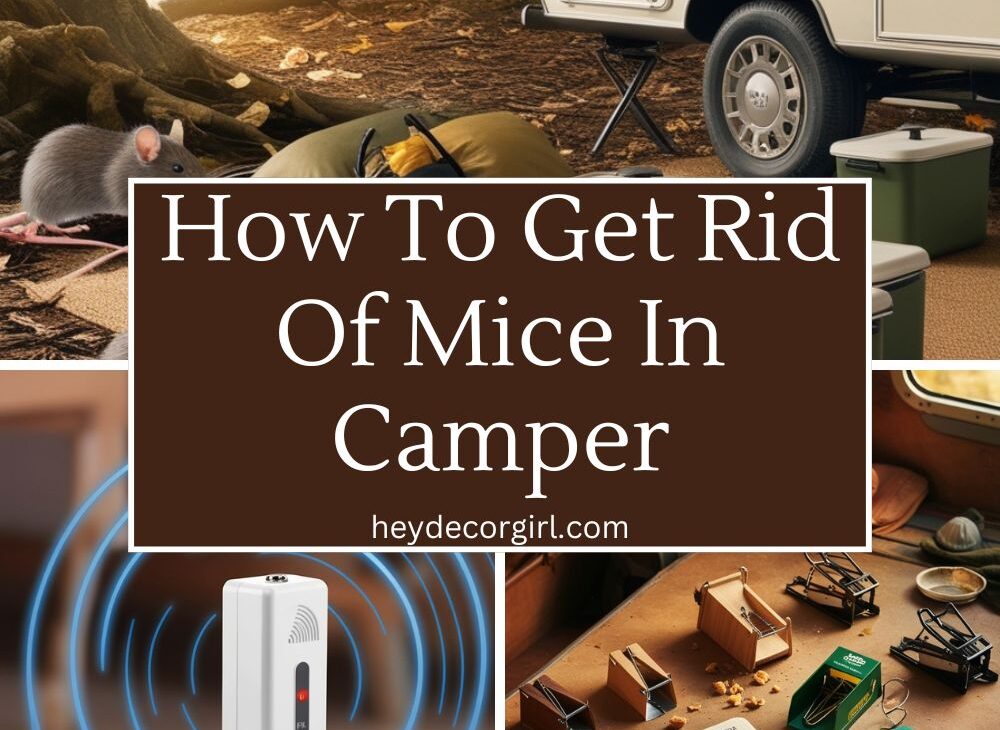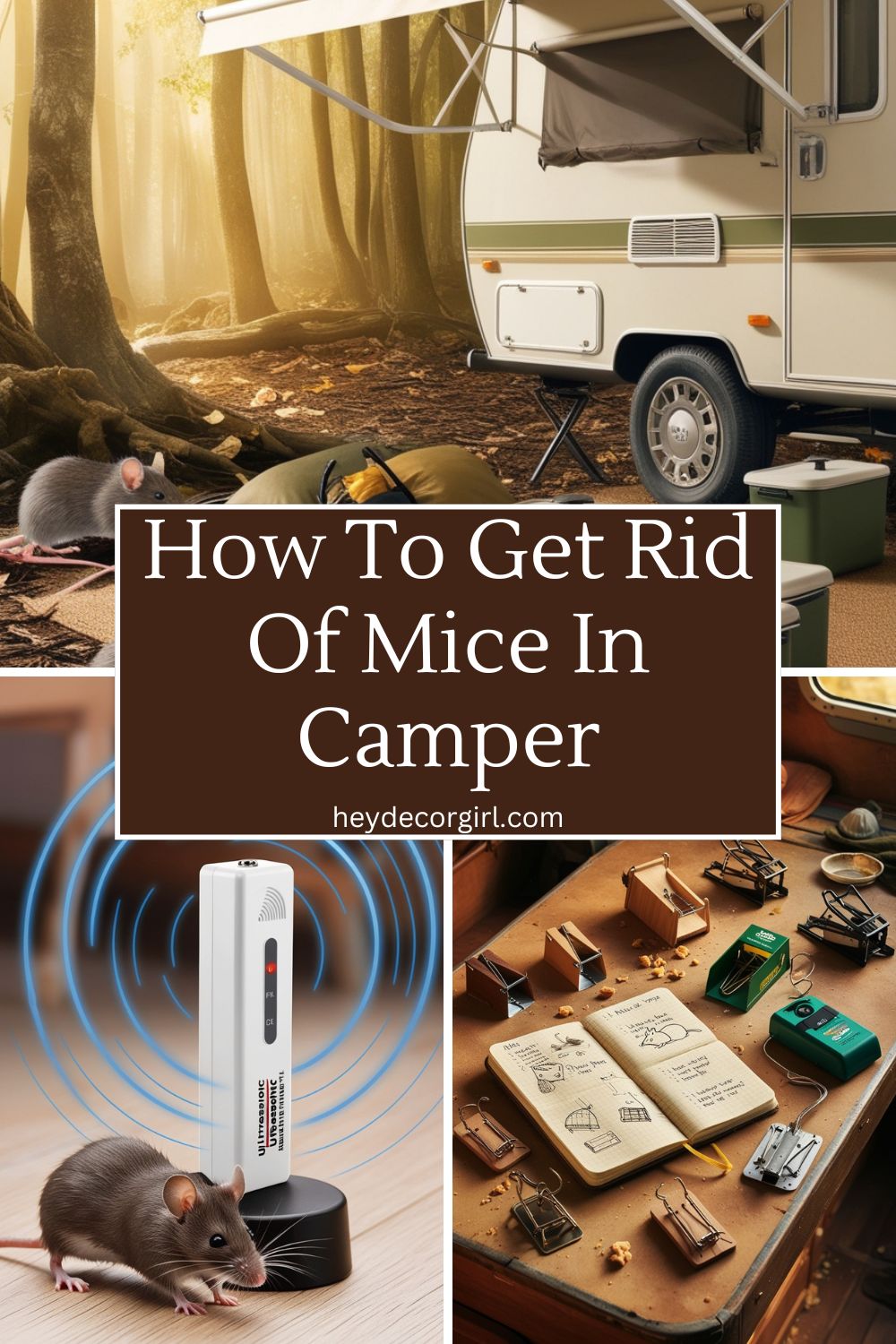How To Get Rid Of Mice In Camper is a common concern for RV and camper owners, especially during the camping season or when the vehicle is stored. Mice are not just an inconvenience; they can cause significant damage to your camper. From chewing through wires and insulation to contaminating food and leaving behind harmful droppings, mice can pose serious health risks, including the spread of diseases such as Hantavirus and salmonella. Their nests can also cause unpleasant odors and attract other pests, making it crucial to address the issue promptly.
The key to preventing a mouse infestation is being proactive and maintaining your camper regularly. By taking the right steps, you can avoid the frustration and damage caused by these tiny intruders. In this article, we’ll cover 15 effective methods for getting rid of mice in your camper, from sealing entry points to using natural repellents. Whether you’re already dealing with mice or just want to prevent them, these tips will help keep your camper rodent-free.
How To Get Rid Of Mice In Camper
1. Seal Entry Points
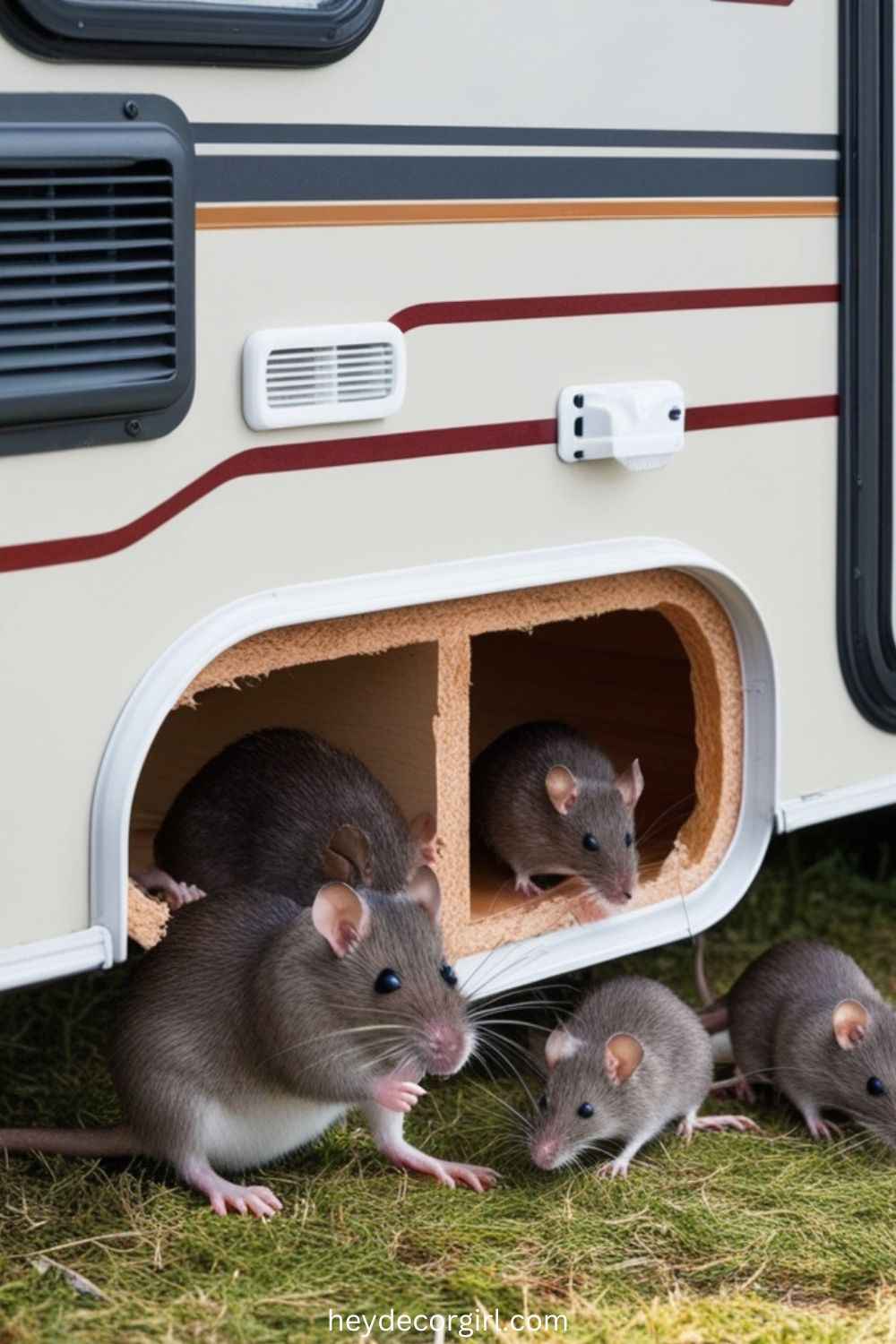
One of the first and most effective steps in getting rid of mice in your camper is to seal all potential entry points. Mice can squeeze through incredibly small openings, so it’s crucial to inspect your camper thoroughly for gaps, cracks, and holes. Common entry points include around windows, doors, vents, and even beneath the vehicle.
To seal these gaps:
- Use steel wool: Mice cannot chew through steel wool, making it a great material for blocking small holes.
- Caulk: Use silicone caulk to seal cracks and larger gaps that are difficult to block with steel wool.
- Weatherstripping: Replace worn or damaged weatherstripping around doors and windows to keep mice from sneaking in.
2. Clean Thoroughly
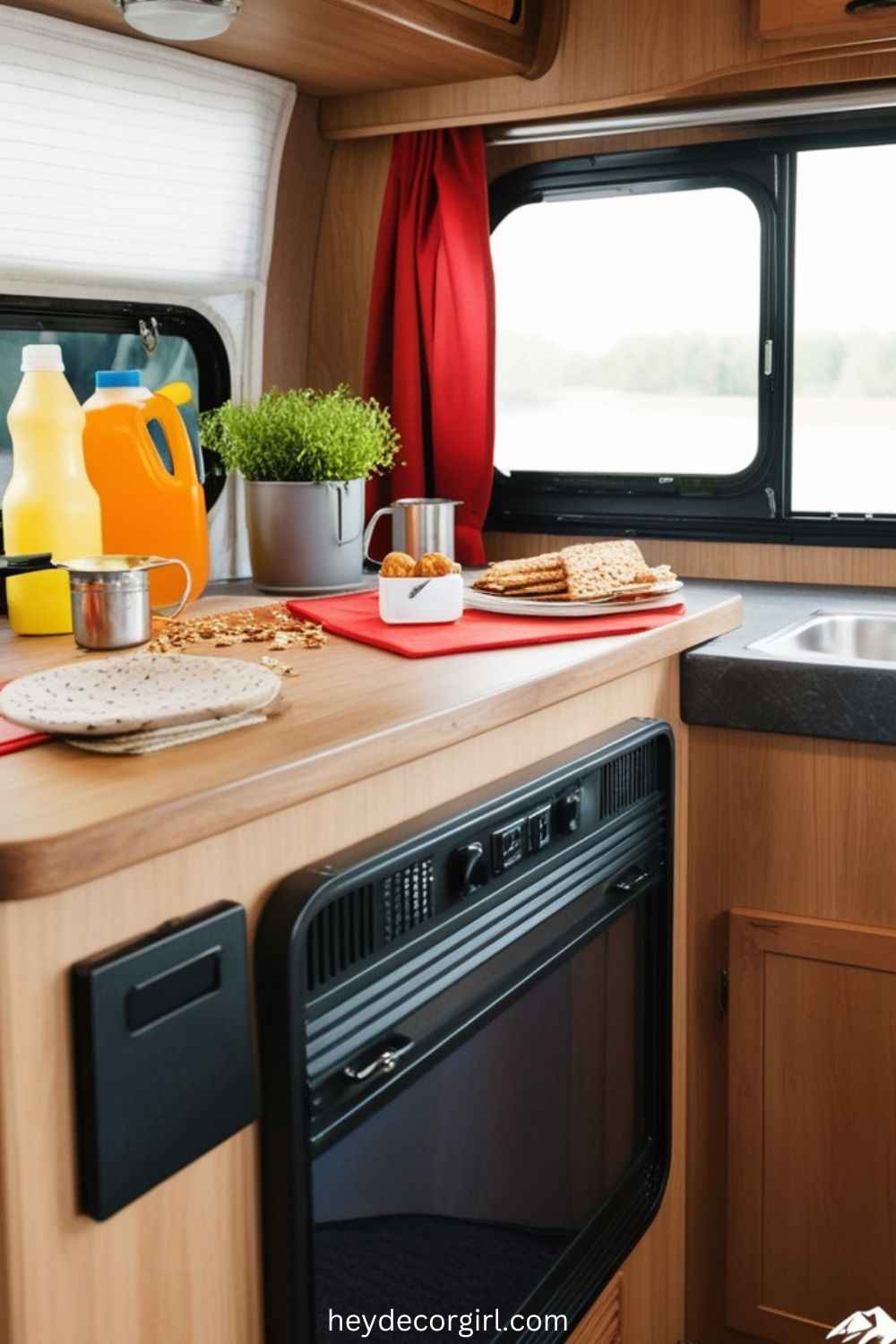
Maintaining a clean camper is one of the best ways to prevent mice from making it their home. Mice are attracted to food, crumbs, and even the scent of spilled liquids, so keeping your camper spotless is essential. Here’s how to clean effectively:
- Remove food crumbs: Sweep and vacuum all floors, countertops, and hard-to-reach areas to eliminate food remnants that could attract mice.
- Wipe down surfaces: Clean all surfaces with a mild disinfectant to remove any food stains, oils, or odors that may tempt rodents.
- Store food properly: Always store food in airtight containers and avoid leaving food out overnight.
3. Use Mouse Traps
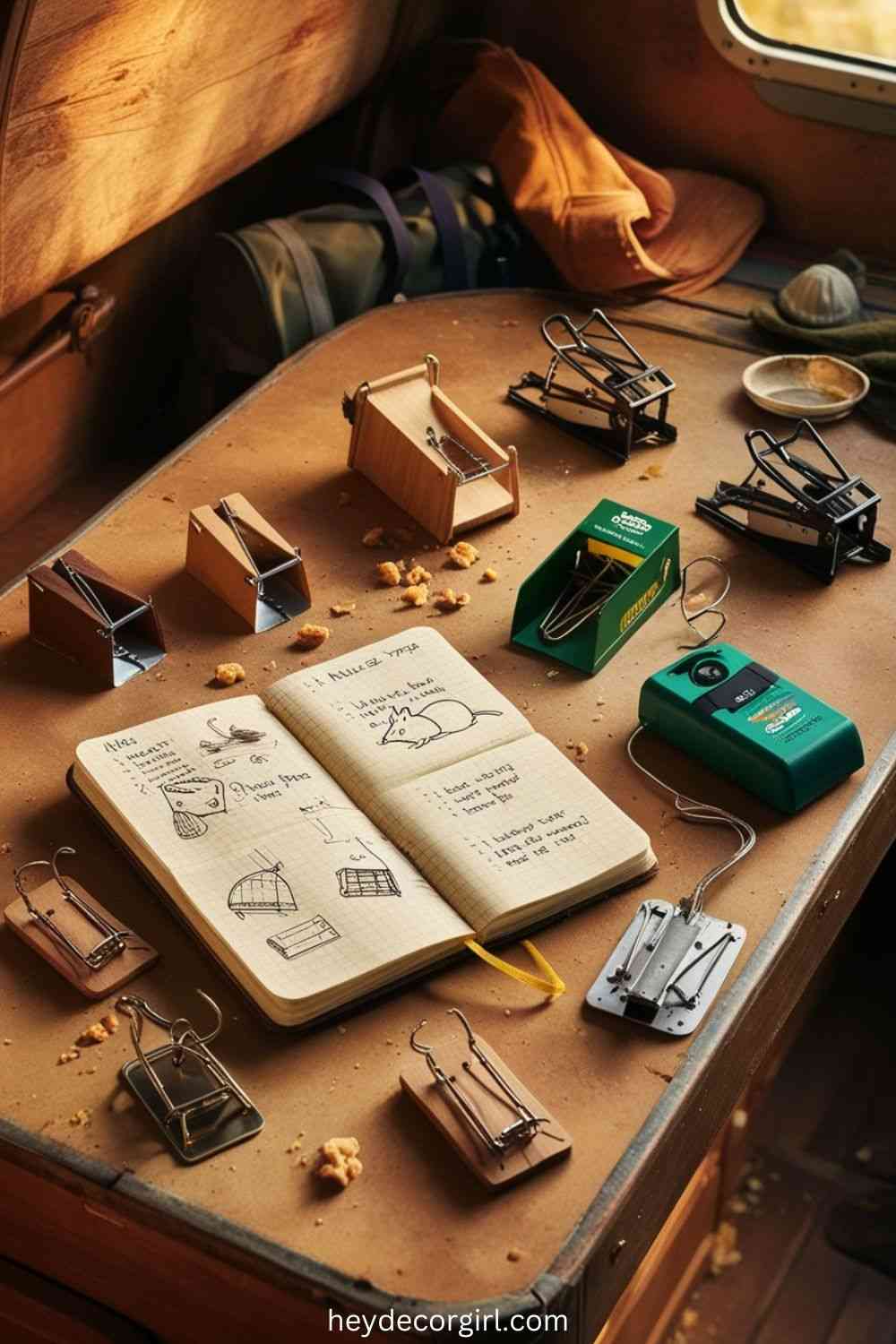
Mouse traps are a tried-and-true method for catching and eliminating mice in your camper. There are several types of traps to consider, each with its own pros and cons. Here’s a breakdown of the most common options:
- Snap Traps: These are the classic mouse traps that provide a quick, humane kill. Place them along known mouse pathways, like walls and corners, for the best results. Use bait such as peanut butter, cheese, or sunflower seeds to attract mice.
- Glue Traps: These traps use a sticky surface to capture mice. While they are easy to use, they can be less humane, as they can cause the mouse to suffer. Use them in places that mice frequent but be sure to check them regularly.
- Humane Traps: If you prefer not to kill the mice, humane traps capture them alive so they can be released away from your camper. While they require more effort to dispose of the mice, they are a good choice for those looking for a more ethical solution.
4. Place Bait Stations
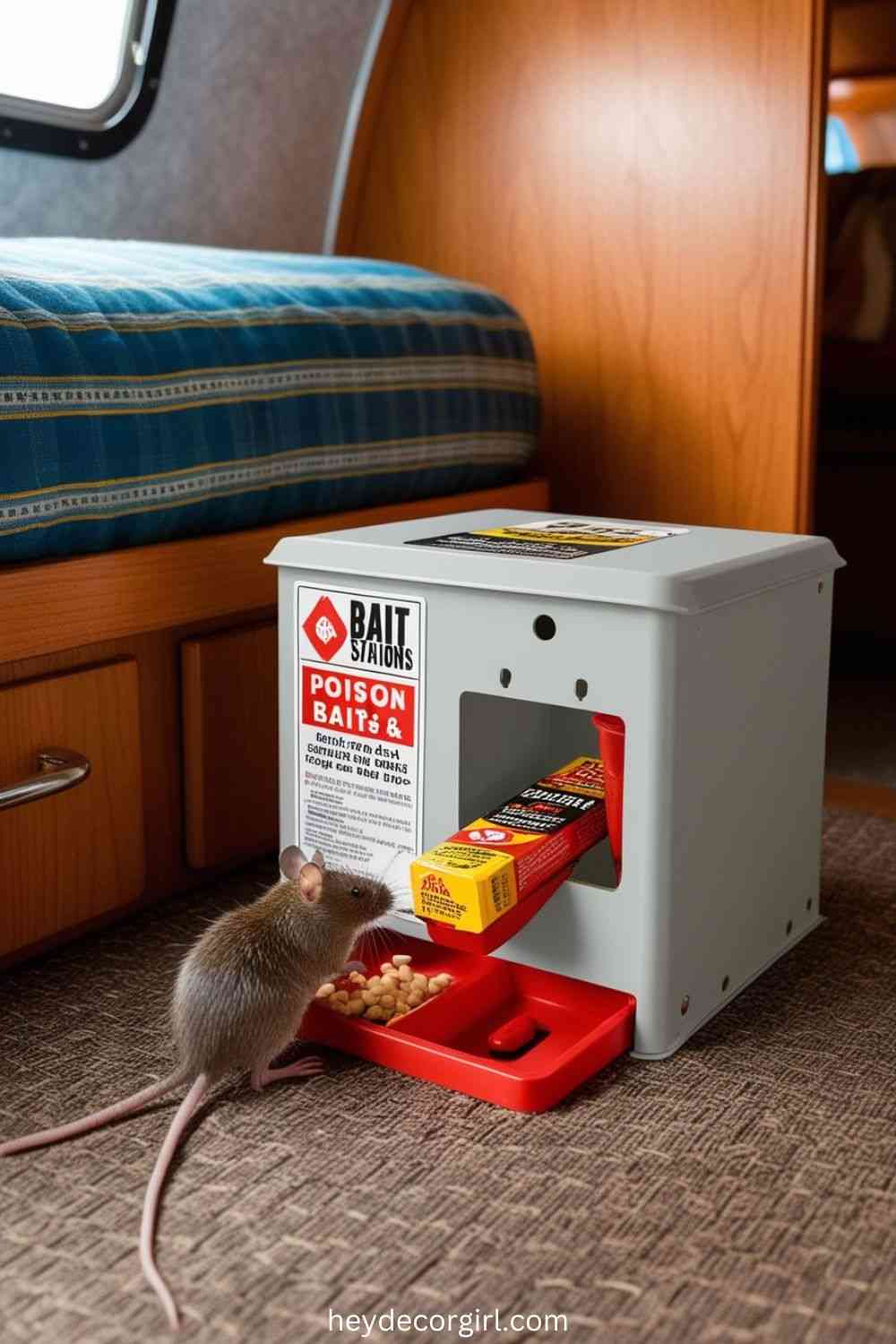
Bait stations are another effective method for getting rid of mice in your camper. These stations use poison or bait to attract and kill mice, offering a more targeted approach than traditional traps. Here’s how to use them properly:
- Choose the right bait: Use bait specifically designed for rodents, such as peanut butter, sunflower seeds, or commercially available rodent bait blocks.
- Place strategically: Position the bait stations along walls, in corners, or near areas where you’ve noticed mouse activity. Mice tend to travel along edges, so these areas are more likely to attract them.
- Use safety precautions: If you have pets or children, ensure that bait stations are placed in hard-to-reach areas, such as inside cabinets or behind appliances. You can also opt for tamper-proof bait stations for added safety.
5. Utilize Peppermint Oil
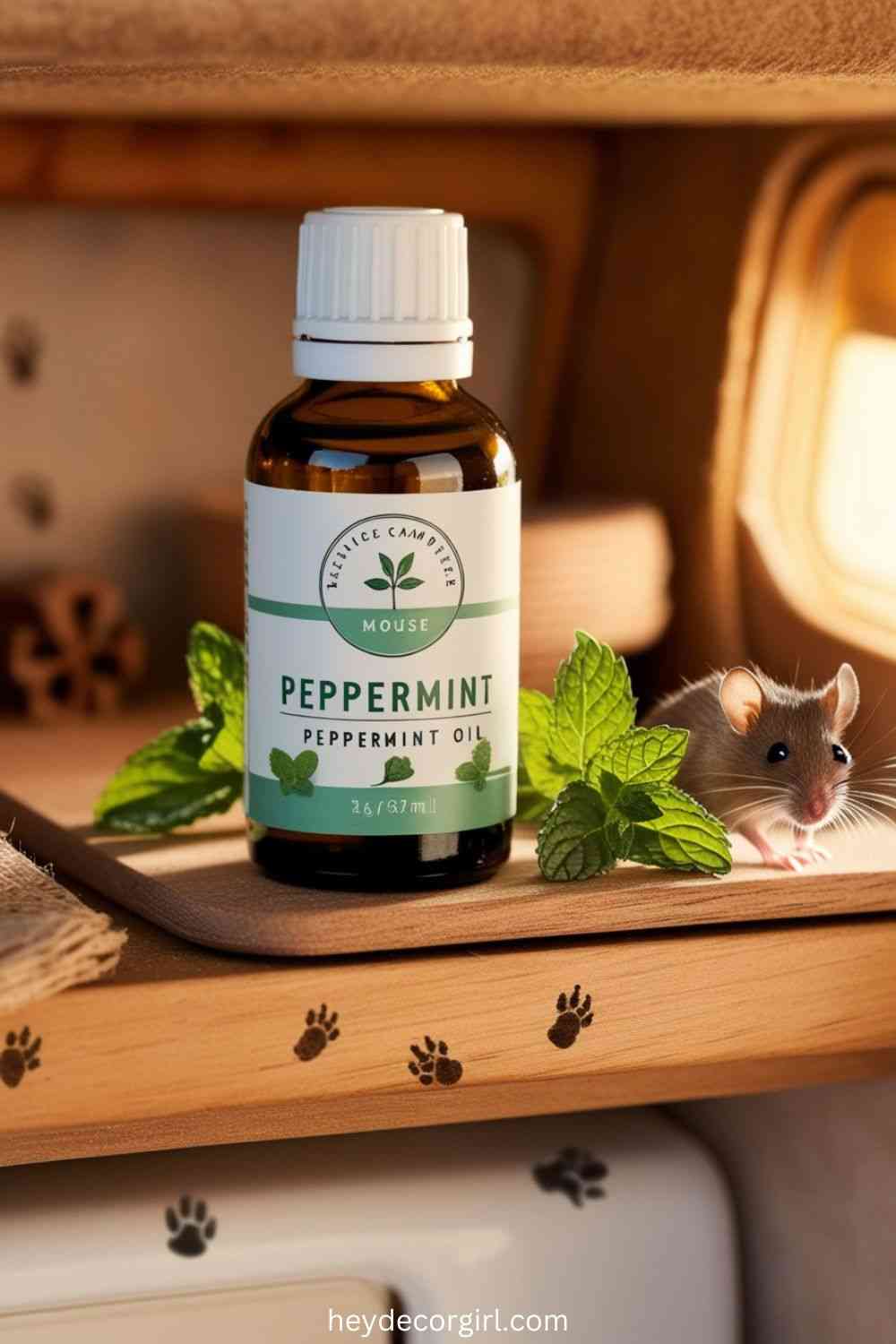
Peppermint oil is a natural and eco-friendly solution to deter mice from invading your camper. Mice are known to dislike the strong smell of peppermint, making it an effective repellent. Here’s how to use it:
- Create a spray: Mix a few drops of peppermint oil with water in a spray bottle (about 10-15 drops per cup of water). Shake well and spray the solution in areas where mice are likely to enter or hide, such as around vents, windows, and doors.
- Soak cotton balls: Soak cotton balls with peppermint oil and place them in corners, drawers, or cabinets, as well as near potential entry points.
- Use in combination: Peppermint oil can be used alongside other methods like sealing entry points or placing traps for a more comprehensive approach.
6. Install Ultrasonic Repellents
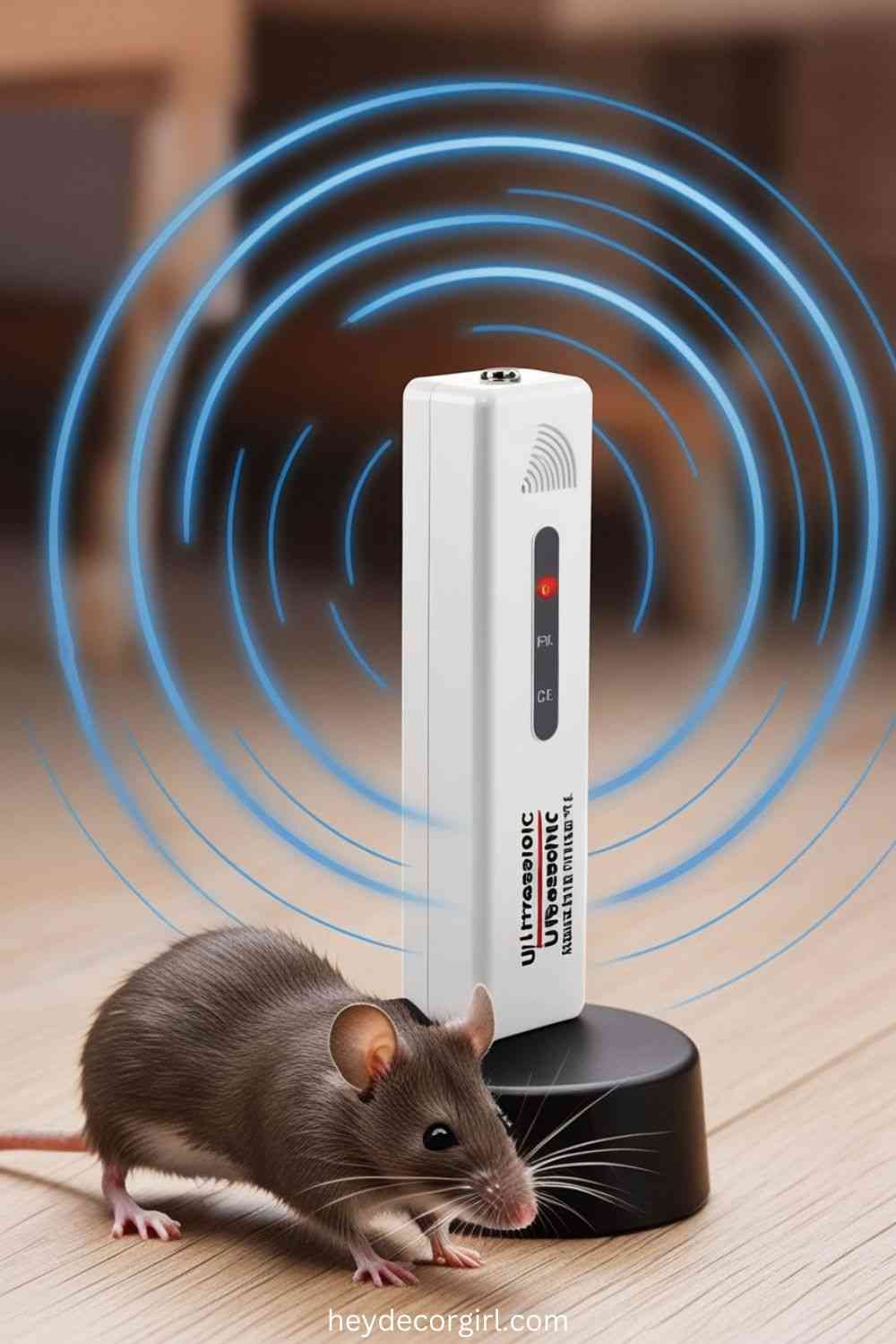
Ultrasonic repellents are devices that emit high-frequency sound waves, which are inaudible to humans but highly disturbing to rodents like mice. These sounds interfere with the mice’s nervous system, making the environment uncomfortable for them and encouraging them to leave. Here’s how to use ultrasonic repellents effectively:
- Choose the right device: Select a repellent designed for use in enclosed spaces like campers. Ensure the device covers the area you’re targeting, such as the entire camper or specific rooms.
- Position strategically: Place the ultrasonic repellent near areas where mice are most likely to enter or hide, such as corners, near entry points, or beneath furniture. These devices are most effective when placed in open areas where sound waves can travel unobstructed.
- Power and frequency: Check the power of the device and the frequency range it covers to ensure it is suitable for your camper’s size. Some devices offer adjustable frequencies that can be switched to prevent mice from getting used to the sound.
7. Keep Food Sealed
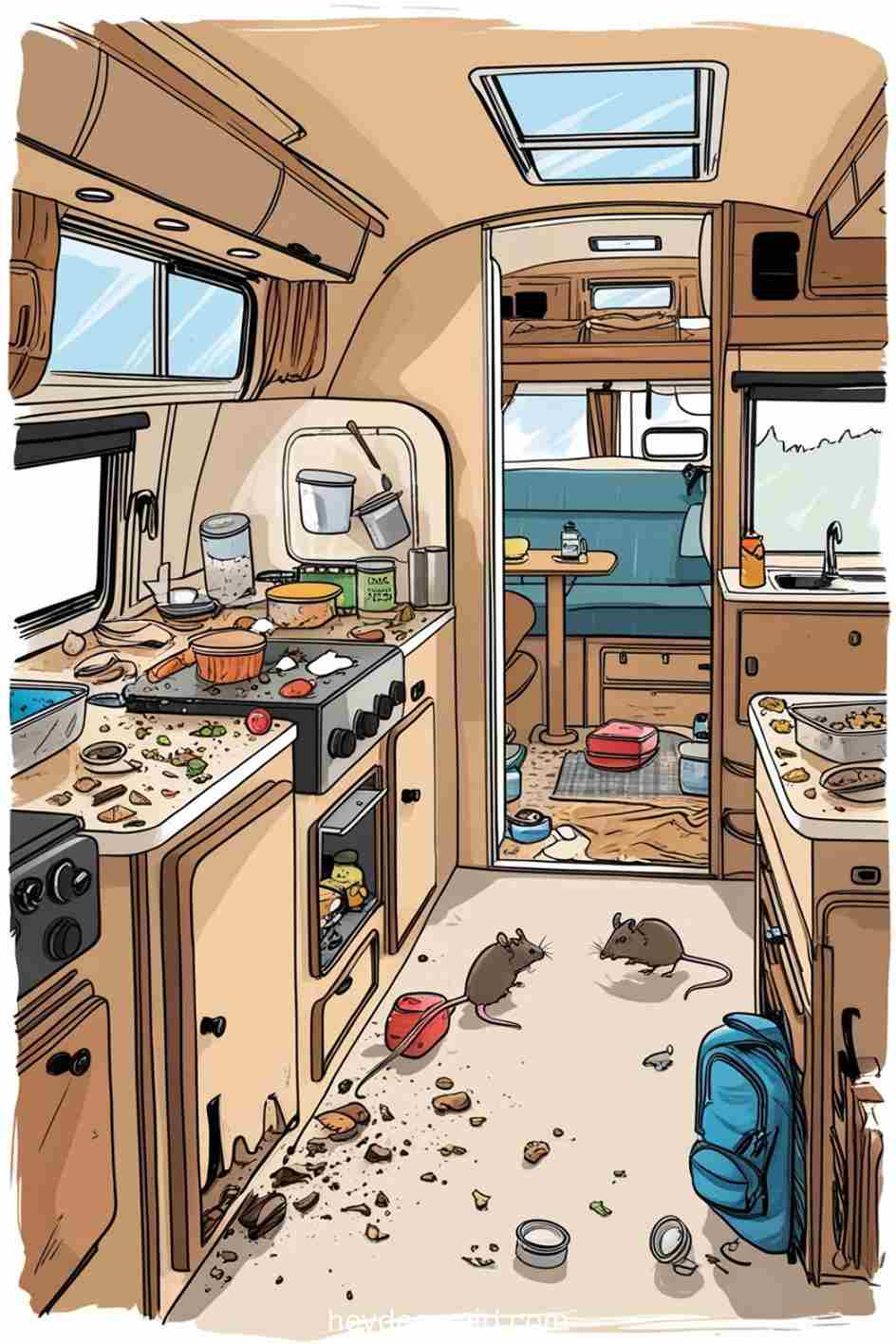
One of the main reasons mice are attracted to your camper is the easy access to food. To prevent mice from being drawn into your space, it’s crucial to keep food sealed and stored properly. Here’s how to do it effectively:
- Airtight containers: Store all food, including snacks, dry goods, and pet food, in airtight, mouse-proof containers. Glass or hard plastic containers with tight-fitting lids work best to keep mice from gnawing through.
- Avoid leaving food out: Never leave food on countertops or tables overnight, even if it’s in a bowl or wrapper. Mice have keen senses and can smell food from a distance.
- Clean up after meals: Wipe down surfaces after eating and make sure crumbs or spills are cleaned up immediately. Even small traces of food can attract mice.
8. Remove Nesting Materials
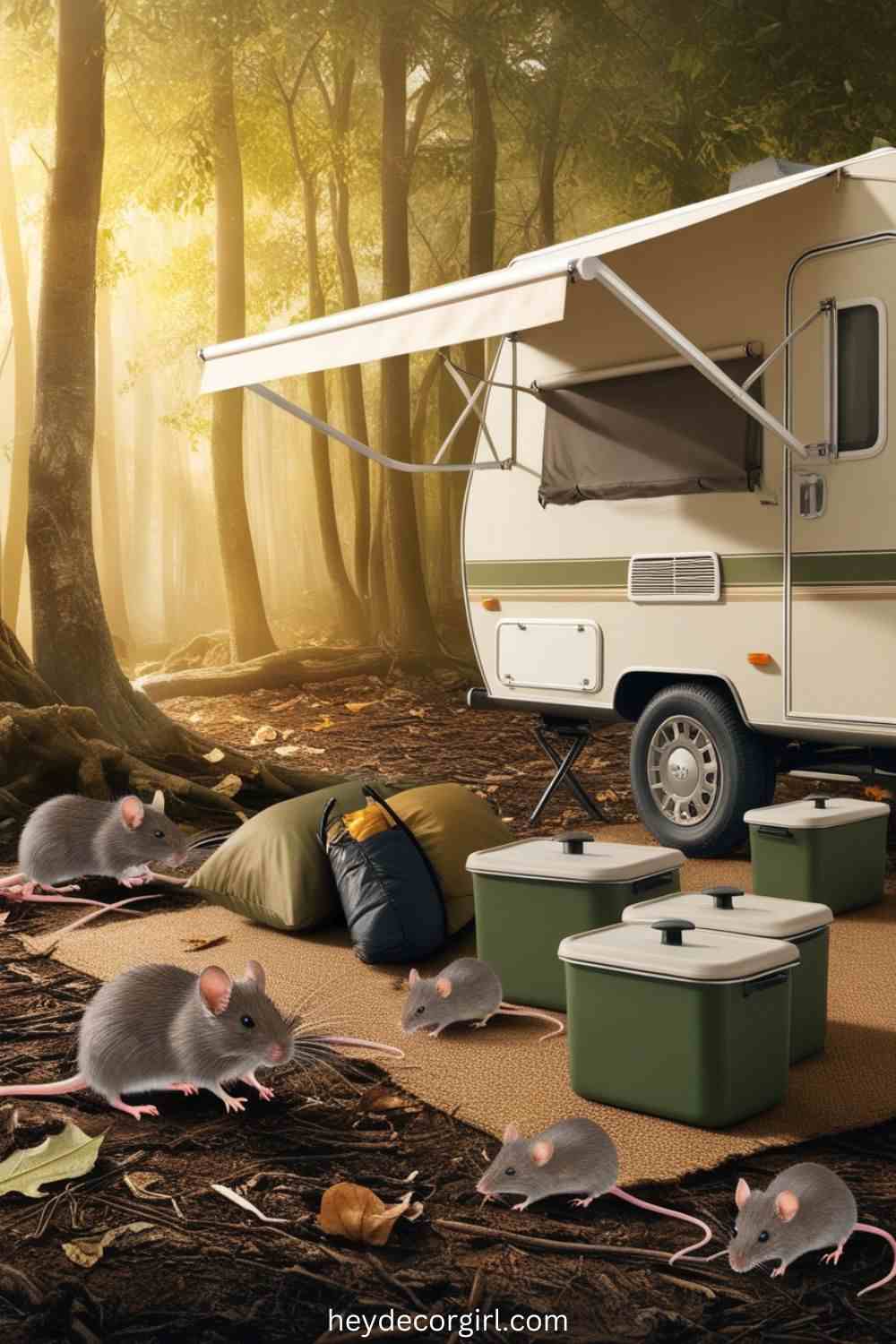
Mice are not only drawn to food, but they also seek out materials for nesting. To make your camper less attractive to them, it’s important to remove any potential nesting materials. Here’s how to prevent mice from building their nests inside your camper:
- Check for soft materials: Mice use soft materials such as paper, fabric, insulation, or cotton to build nests. Regularly inspect places like storage areas, drawers, and corners for any signs of nesting materials.
- Store items properly: Keep paper, fabric, and other potential nesting materials stored in sealed, sturdy containers. Avoid leaving them exposed, especially in areas where mice might get easy access.
- Remove clutter: Clutter around the camper can provide hiding spots for mice. Keep areas like under beds, inside closets, and near appliances clear of unnecessary items, as they can serve as potential hiding or nesting places.
9. Use Dryer Sheets or Soap Bars
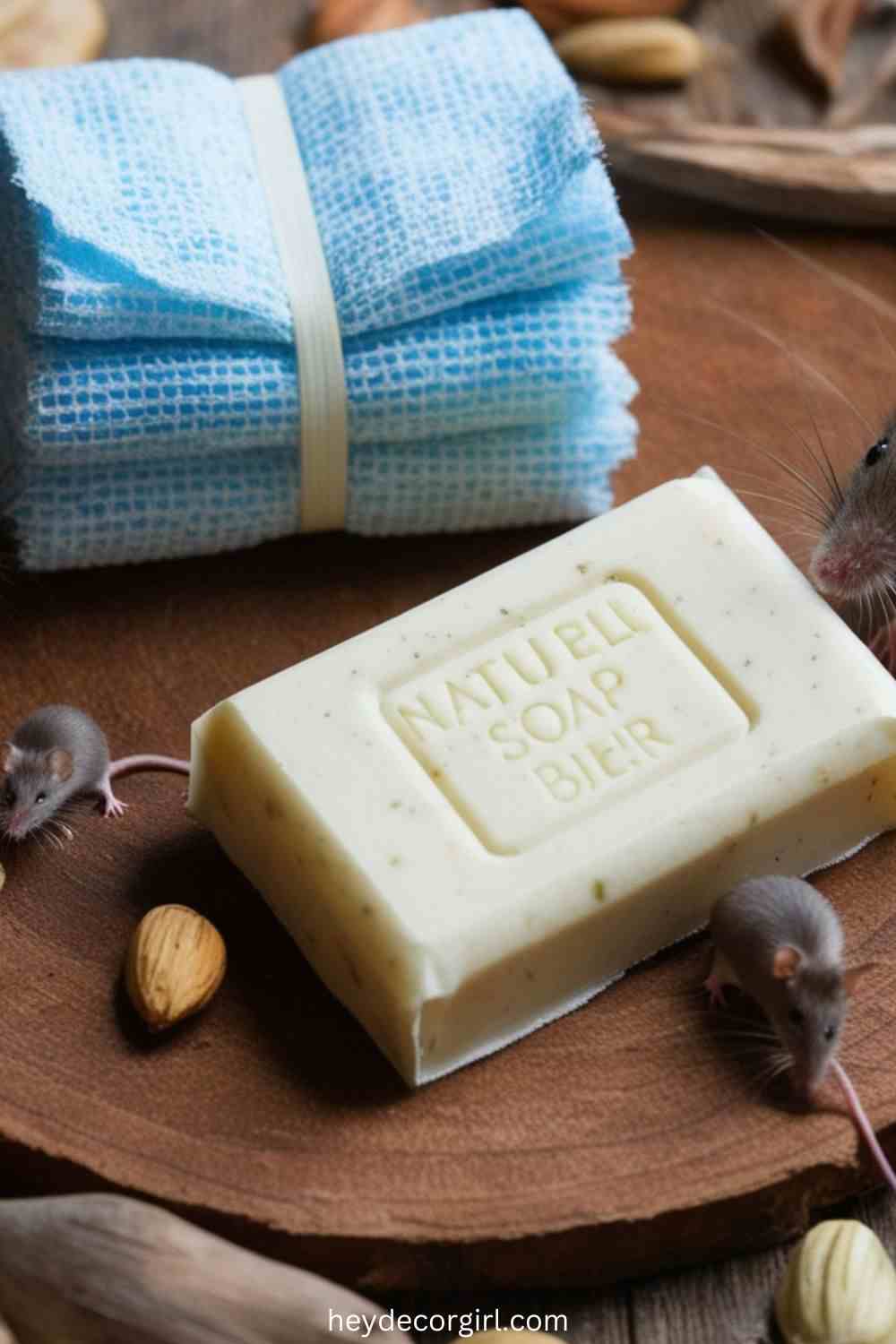
Dryer sheets and soap bars are often cited as natural remedies to repel mice due to their strong scents. While not as scientifically proven as other methods, many camper owners find them effective in deterring mice. Here’s how you can use them:
- Dryer sheets: Place a few dryer sheets in areas where mice are likely to enter or nest, such as near vents, under furniture, or in storage compartments. Mice are believed to dislike the strong smell of the sheets, which can help keep them away.
- Soap bars: Strong-scented soap bars, particularly those with a strong, overpowering fragrance like Irish Spring, are often used to deter mice. You can place whole bars of soap in corners, closets, or storage areas where you’ve noticed mouse activity.
10. Try Natural Predators
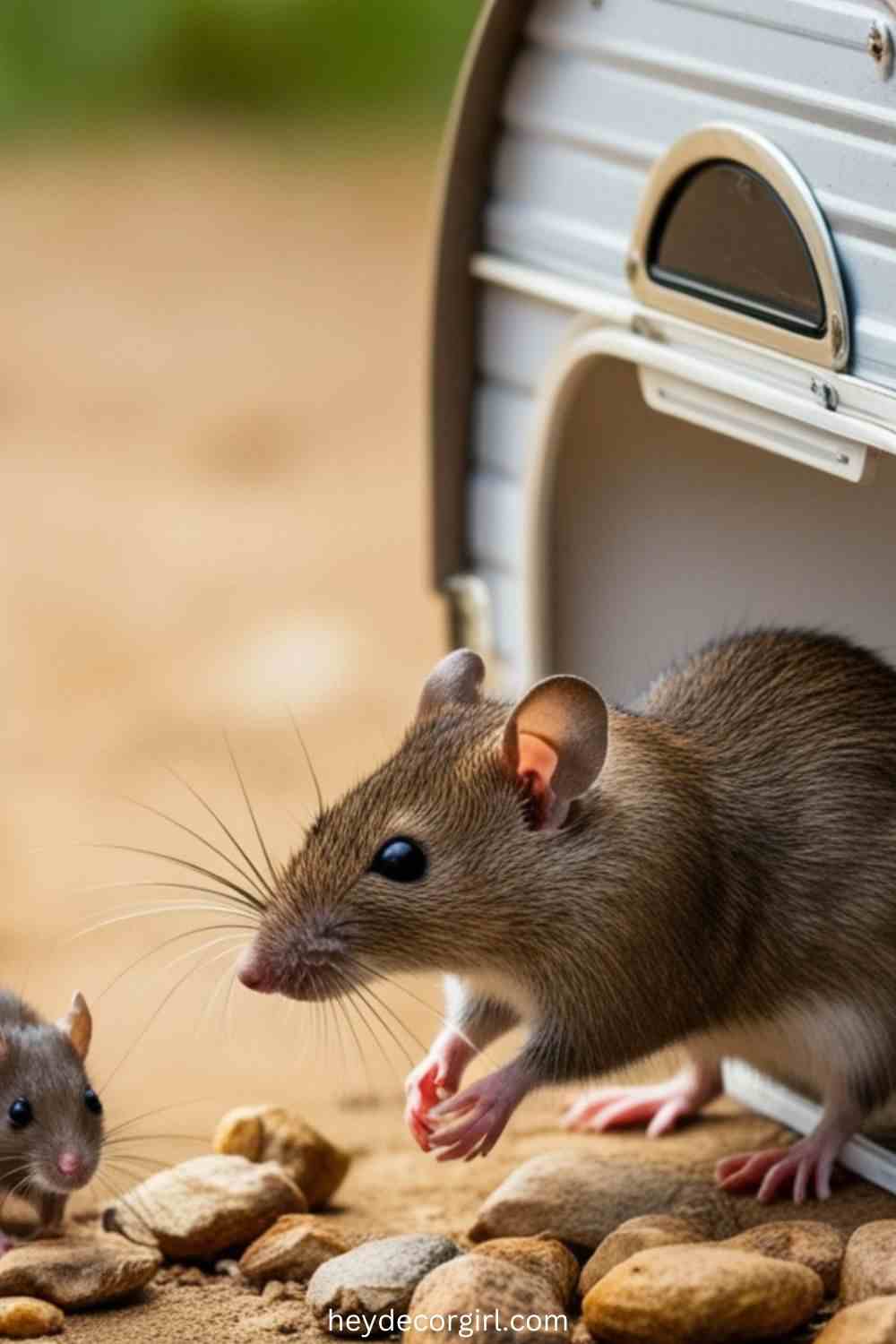
Introducing natural predators into your camper environment can be an effective way to deter mice. While it may not always be practical to have a full-time predator, some animals can help keep your camper free of rodents. Here’s how to use natural predators:
- Cats: Cats are one of the most common natural predators of mice. If you own a cat or are able to bring one along on camping trips, their presence can discourage mice from taking up residence in your camper. Cats are highly skilled at catching and scaring off rodents, especially when they can roam freely around the camper and surrounding areas.
- Dogs: While not as effective as cats in hunting mice, certain dog breeds, especially terriers, have a strong instinct to chase and eliminate small animals. Having a dog with a high prey drive can help keep mice at bay.
- Other animals: If you’re looking for an eco-friendly solution and you live in an area with natural predators, you could also encourage the presence of owls or hawks by installing birdhouses or bird perches nearby. These predators can help control the local rodent population, although this method is more of a long-term solution.
FAQ
1. Why are mice a problem in my camper?
Mice can cause significant damage to your camper by chewing on wires, insulation, and fabrics. They can also contaminate food and spread diseases through droppings and urine. If left unchecked, a mouse infestation can lead to costly repairs and health risks.
2. What are the most common signs of a mouse infestation in my camper?
Look for droppings, chewed-up food packaging, gnawed wires or fabrics, and unusual noises, especially at night. The smell of urine or musky odor may also indicate a mouse presence.
3. How can I prevent mice from entering my camper?
Seal all potential entry points, such as cracks, gaps around windows, doors, and vents. Use materials like steel wool or caulk to close any holes, and regularly inspect for new openings.
4. What’s the most effective way to get rid of mice in a camper?
A combination of methods works best. Seal entry points, clean thoroughly, use traps, and consider natural repellents like peppermint oil or ultrasonic devices. Regular maintenance and checking for new signs of mice are essential.
5. Are ultrasonic repellents effective for mice in campers?
Yes, ultrasonic repellents can work by emitting high-frequency sound waves that disturb mice. However, their effectiveness may vary depending on the size and layout of your camper. They’re best used alongside other methods like sealing entry points and using traps.
6. Is peppermint oil really effective in keeping mice away?
Peppermint oil is a natural deterrent that mice find unpleasant. While not as powerful as traps or bait stations, it can help repel mice, especially when used regularly and combined with other preventive measures.
7. Can I use traditional mouse traps in my camper?
Yes, traditional snap traps, glue traps, and even humane traps can be used in your camper. Place them along walls or in areas where you’ve noticed signs of mice activity. Make sure to check them regularly.
8. Should I use poison or bait stations in my camper?
Bait stations can be effective but should be used with caution, especially if you have pets or children. Ensure that bait stations are placed in areas where they are out of reach, or use tamper-proof models for safety.
9. How often should I clean my camper to prevent mice?
Regular cleaning is key. Sweep and vacuum frequently, wipe down surfaces after meals, and avoid leaving food out. Pay special attention to food storage and remove any crumbs or spills immediately.
10. Can a cat help keep mice out of my camper?
Yes, a cat can be an effective natural predator of mice. If you’re able to bring a cat along during camping trips, their presence may discourage mice from entering your camper and could help reduce infestations.
How To Get Rid Of Mice In Camper
Last modified: December 21, 2024
![Hey Decor Girl [Latest Trending Decor Design Ideas]](https://heydecorgirl.com/wordpress/wp-content/uploads/2024/08/Heygirldecor-Logo.png)
